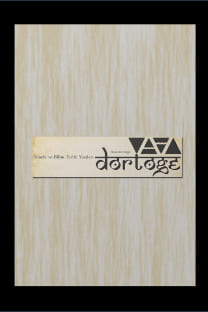Devrimin Değişim Fantazisine Karşı Ajansal Sanat
Devrim kelimesi, ‘köklü ve temelli bir değişme’ anlamına ek olarak, ‘dönüş’ ‘dönmek’, yani bir şey etrafında dairesel hareket tanımını da taşımaktadır. Tanımlama ‘köklü ve temelli’ bir değişim olduğuna göre, bu değişim, toplumsal gerçekliğin bir bütün olarak değiştirilmesi anlamında olmalıdır. Fakat tamamen değil de, onun içinde hareket ederek bir değişim isteniyorsa, bu temelden bir değişim istenmediğini işaret etmektedir. Bunun nedeni, insanların, bu gerçekliğin bakışı ve öteki üzerinden kurguladıkları fantazi kimliklerinden vazgeçmek istemeyerek ezen-ezilen, suçlu-kurban, isyancı-hükmeden gibi roller içinde kendilerini sabitlemeleridir. Bu nedenle, Sartre’ın, bir şeyi istememizi sağlayan şeyin özgürlüğümüz olduğunu ve özgür olmaya mahkûm olduğumuzu açıklaması bu çalışmanın temelini oluşturur. Bu rollerden, fantazi kimliğimizden vazgeçme özgürlüğümüz olduğu halde özgürlüğümüzü reddetmeye çalışıyorsak, bu tamamen ve temelden bir değişim istemediğimiz anlamına gelir. Bu nedenle, insan, sürekli aynı kaçış stratejisi etrafında dönmektedir; devrimlerle kendini özgür kılma arzusu ile birlikte, bununla çelişkili olarak, özgürlüğünü reddetmek için toplumsal gerçekliğin mevcut halini yürürlükte tutar. Güncel sanat örnekleri de bu rolleri ve yapıyı yeniden ürettiğinde; yeni bir gerçeklik önerisi getirerek tamamen ve temelden bir değişim gerçekleştirmeyi değil, aynı işlemi yürürlükte tutmayı istedikleri anlaşılır. Baudrillard’ın ortaya koyduğu gibi, bugün sanat, gerçekliğin ikizini üretme noktasına gelecek kadar gerçekliği onaylayarak kendini geçersiz kılmaktadır. Sanat izleyicisi de sanatın bu işleminden tatmin olarak bu yürütmenin yürütücüsü rolü taşımaktadır. Tüm bunlar ışığında, bu çalışmanın sonunda öne sürülen ajansal sanat önermesi; öznenin/izleyicinin sorumluluğu, baskı kuranın fantazi kimliğine transfer etmesini sağlayan kendi fantazi kimliğinden vazgeçmek ve dolayısıyla değişimi istememesinin nedeninin aslında kendi özgürlüğüne direnişi olduğunu sunar.
Anahtar Kelimeler:
Değişim, Özgürlük, Toplumsal Gerçeklik, Fantazi, Sorumluluk, Ajansal Sanat
Agent Art Versus Revolution’s Fantasy of Change
The word ‘revolution’ in addition to the meaning of ‘changing something radically and fundamentally’, also means, ‘revolve’ ‘roll back’ that is to say, a circular movement travelled around something. Since the definition is ‘changing radically and fundamentally,’ this change must mean changing social reality as a whole. Yet, rather than as a whole, a change by acting within it is wanted, which indicates that what is desired is not a fundamental change. The reason for this is that human does not want to give up their fantasy identities that they have built through the gaze of this reality and the other, which facilitates them to fix themselves in roles such as oppressor-oppressed, criminal-victim, rebel-dominator. For this reason, Sartre’s explanation of freedom as it is our freedom that enables us to want something and that we are condemned to be free is the basis of this paper. Therefore, even though we are free to give up these roles and our fantasy identity, if we are trying to reject our freedom, this means that we do not want a complete and fundamental change. That is why the human constantly revolves around the same escape strategy; while they desire to be free by revolutions, contradictorily, they retain the current state of social reality in force in order to deny their freedom. When contemporary art examples reproduce these roles and the structure; it is understood that they too want to keep the same operation in effect, rather than wanting a complete and fundamental change by introducing a new reality. As Baudrillard explains, art today is making itself null by confirming reality as much as to reproduce the twin of reality. The art viewer also has the role of executing this execution when gets satisfied with this operation of art. In light of all of this, the proposition of the agent art that will be presented at the end of this paper suggests that; the reason the subject/viewer does not want to give up their own fantasy identity that allows them to transfer the responsibility to the fantasy identity of the oppressor and therefore does not want change, is based on their resistance to their own freedom.
Keywords:
Change, Freedom, Social Reality, Phantasy, Responsibility, Agent Art,
___
- Baudrillard, J. (2005). The Conspiracy of Art. (Sylèvre Lotringer, Ed.) (Ames Hodges, Çev.). New York: Semiotext(e).
- Baudrillard, J. (2011). Sanat Komplosu. (E. Gen, I. Ergüden, Çev.). İstanbul: İletişim.
- Etymonline. Revolution. Online Etymology Dictionary. Erişim: 21.01.2015. http://www.etymonline.com/index.php?allowed_in_frame=0&search=revolution&searchmode=none.
- Etymonline. Revolve. Online Etymology Dictionary. Erişim: 21.01.2015. http://www.etymonline.com/index.php?allowed_in_frame=0&search=revolve&searchmode none.
- Nişanyan, S. Devrim. Nişanyan Sözlük. Erişim: 13.04.2019. https://www.nisanyansozluk.com/?k=devrim Oxford. (1998). The Oxford English Dictionary. C. 13. Oxford: Oxford University.
- Tietze, A. (2016). Tarihi ve Etimolojik Türkiye Türkçesi Lugati. C.2. Ankara: TUBA.
- Türk Dil Kurumu (TDK). Devir. Güncel Türkçe Sözlük. Erişim: 13.04.2019. http://www.tdk.gov.tr/index.php?option=com_bts&arama=kelime&guid=TDK.GTS.5cc45338b1e5b5.67481022
- Türk Dil Kurumu (TDK). Devrim. Bilim ve Sanat Terimleri Sözlüğü: Felsefe Terimleri Sözlüğü. Erişim: 13.04.2019. http://www.tdk.gov.tr/index.php?option=com_bilimsanat&arama=kelime&guid=TDK.GTS.5cc45742a0b924.98172771
- Saraç, T. (1976). Fransızca-Türkçe Büyük Sözlük. Ankara: Türk Dil Kurumu.
- Sartre, J. P. (2011). Varlık ve Hiçlik. (T. Ilgaz, G. Çankaya Eksen, Çev.). İstanbul: İthaki.
- Stallabrass, J. (2009). Sanat A.Ş.: Çağdaş Sanat ve Bienaller. (Esin Soğancılar, Çev.). İstanbul: İletişim.
- Žižek, S. (2008). İdeolojinin Yüce Nesnesi. (Tuncay Birkan, Çev.). İstanbul: Metis.
- ISSN: 2146-7064
- Yayın Aralığı: Yılda 2 Sayı
- Başlangıç: 2012
- Yayıncı: Nobel Akademik Yayıncılık
Sayıdaki Diğer Makaleler
Ses ve Fenomen: Derrida ve Husserl
Platon’un Phaidon’unda Hakiki Filozofların Faaliyeti
Kurmaca Kentler Gerçek Mekânlar
Spinoza’da Birinci Tür Bilgi: “Hayal Gücü” Zemininde Bir Derinleştirme
Leibniz’in Varlık Hiyerarşi Üzerine Plotinosçu Bir Okuma
Devrimin Değişim Fantazisine Karşı Ajansal Sanat
